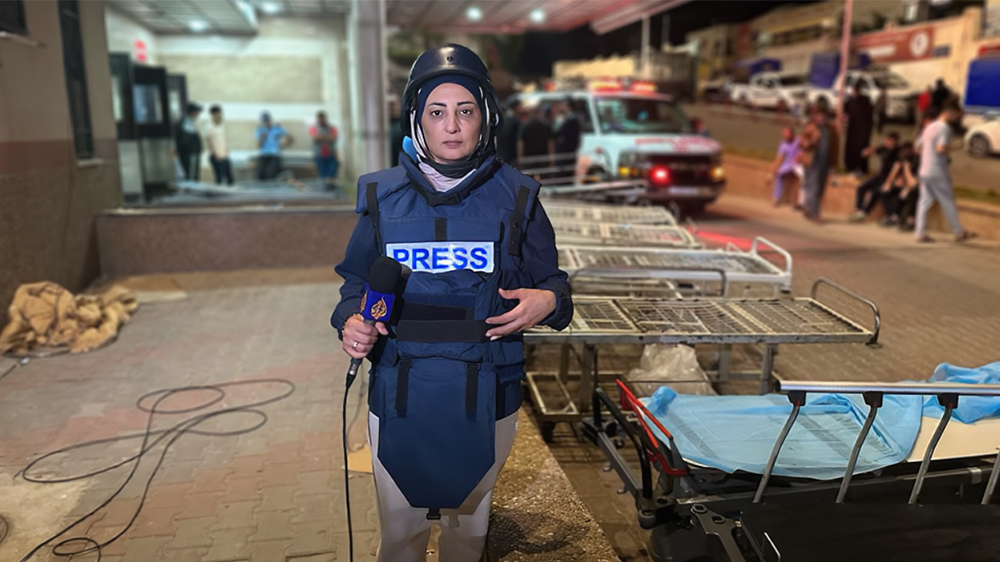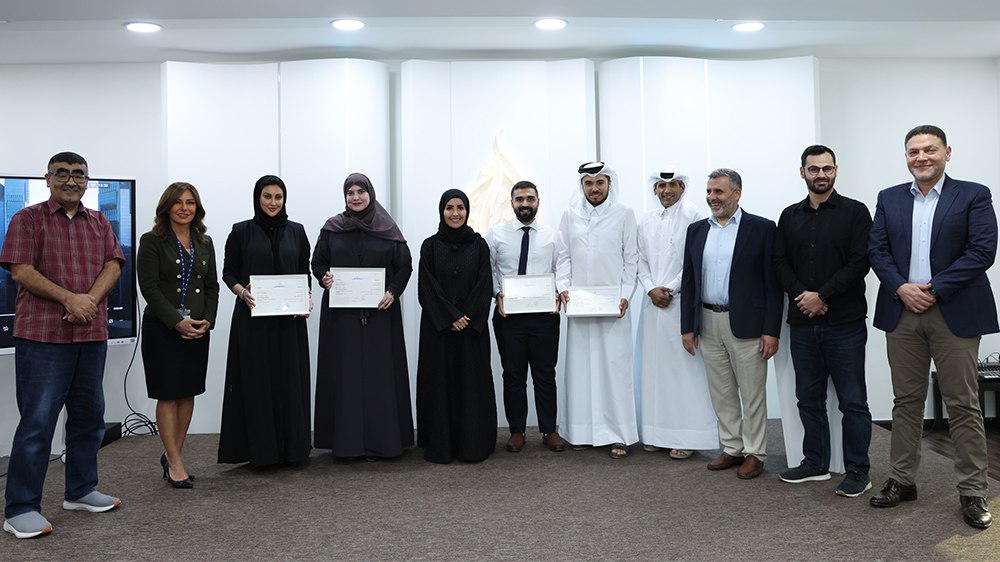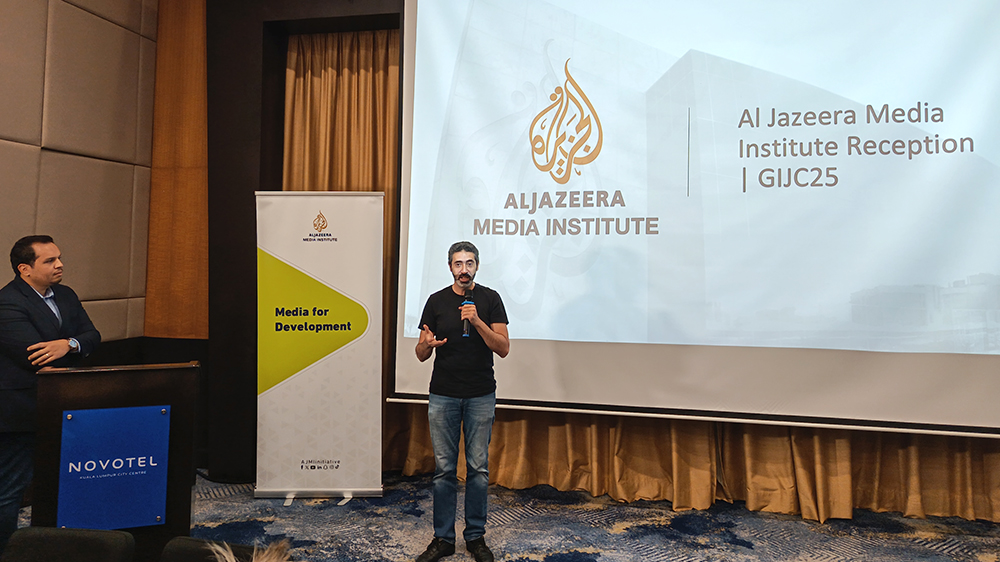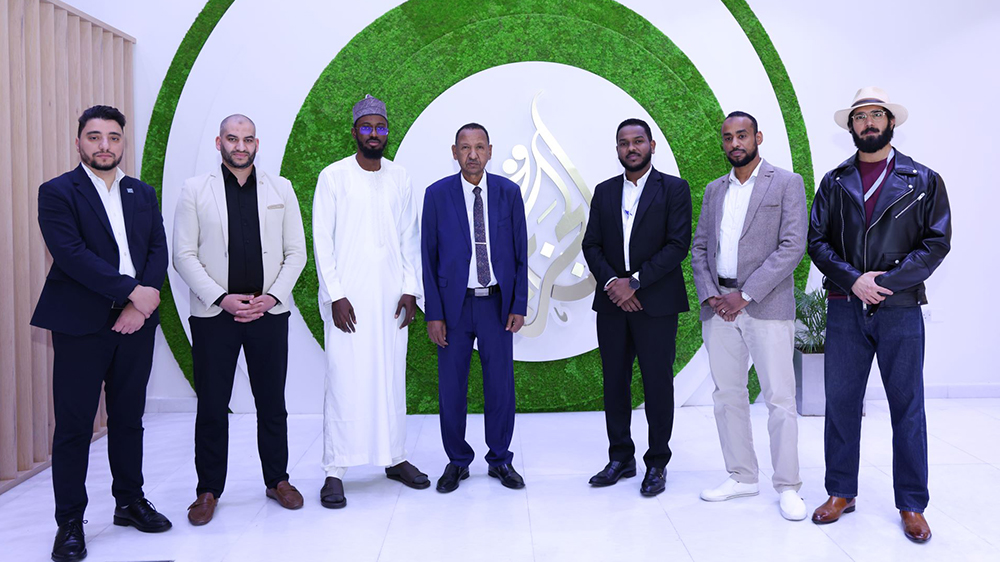News & Events
A workshop on Press coverage for the War on Gaza, Documenting the crime through e-learning platform

AJMI - Doha
Aljazeera e-learning platform held a two-days training workshop (on third and fourth of April) titled, "Press Coverage for the War on Gaza... Documenting the Crime", presented by Aljazeera correspondent in Palestine, Heba Akileh.
Akila revealed, for the first time, details of stories that happened at the backstage coverage of Aljazeera and talked about events that she faced with colleagues working in Aljazeera bureau in Gaza and other journalists in the Strip. She pointed out that the scale of tragedy transmitted by the cameras is only a small fraction of the real anguish that people of Gaza are facing, criticizing the biased Western coverage of the Israeli narrative.
Akila stressed the need to humanize journalistic stories so that the viewer does not get used to images of killing and destruction as the war continues for more than six months, stressing that the deliberate Israeli targeting of journalists and their families in order to continue exterminating Palestinian people silently in the darkness without witnesses or documentation. She also devoted a special portion for the situation of women journalists focused on "What does it mean to be a field journalist in Gaza?" where she explained suffering of female journalists in general, and female journalist mothers in particular, such as lack of privacy and many other impacts of the war on them.
On the first day of the workshop, Akila revealed that she was seriously ill and forced to leave Gaza Strip, due to the lack of required health care in Gaza hospitals as a result of Israeli aggression. She also devoted a part of the workshop to interact with the followers, where they focused largely on the situation in Gaza Strip and how to convey the real event to a wider public.
On the second day of the workshop, Aljazeera correspondent in Palestine, Heba Akileh, explained her displacement journey in Gaza Strip, and also talked about the martyrdom of colleague Samer Abu Daqqa, and deliberate targeting of families of the rest of her colleague journalists, stressing that the impact of targeting families of journalists multiplies the pains of a journalist and puts him into a difficult psychological situation that doesn’t disappear over time.
The workshop concluded by providing advice to journalists on how to prepare for field coverage, dealing with sources and on-air updating of information, and how to deal with various difficult circumstances and situations, especially logistic problems such as power outages and communications and the Internet interruptions.







